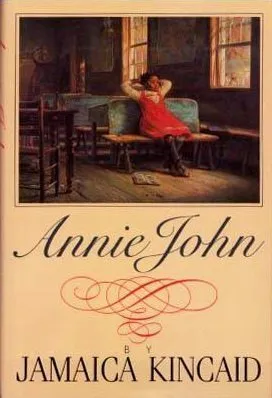Annie John
By (author): "Jamaica Kincaid"
Publish Date:
1985
ISBN0374105219
ISBN139780374105211
AsinAnnie John
CharactersAnnie John, Miss Nelson, Mr. Nigel, Mineu, Ma Chess
Original titleAnnie John
In a piece about Jamaica Kincaid's work, Derek Walcott wrote: "Genius has many surprises, and one of them is geography. While we settle in the tradition of expecting art to be made only in certain places on the map—in those fixed points of culture that make us as assured of our position as the geometry of the stars—some cell, in the least predictable place, is accreting things to itself . . ." With Annie John, Kincaid makes us privy to the particular accretions gathered during a coming of age in Antigua, transforming those realities into the structure of a short fictional narrative. While the poetic abstractions that marked many of the stories in her previous book, At the Bottom of the River, are grounded in detail here, their theme of the loss of childhood, on many levels, remain constant.Annie's childhood is suffused with doting attention from her elders; her passage to adolescence is fraught with events and alliances that lead her away from complacent mutual acceptance. As a punishment in school, she is asked by her English headmistress to copy Books I and II of Milton's Paradise Lost—her crime, the defacing of a picture of Christopher Columbus, who "discovered" the West Indies. When Annie and her secret friend, the atypical guava-tree-climbing, barefoot, and wild-haired "Red Girl," are physically separated, Annie dreams that they live alone on an island: "At night we could sit on the sand and watch ships filled with people on a cruise steam by. We sent confusing signals to the ships, causing them to crash on some nearby rocks. How we laughed as their cries of joy turned to cries of sorrow." Annie's rebellions presage a turning away from her circumscribed island, where, "as usual, the sun shone, the trade winds blew; on her way to put some starched clothes on the line, my mother shooed some hens out of her garden . . ." And, more importantly, they signal a break from her previously adored and adoring mother. “I could not be sure if for the rest of my life I would be able to tell when it was really my mother or when it was really her shadow standing between me and the rest of the whole world."
